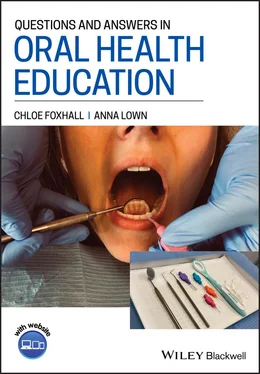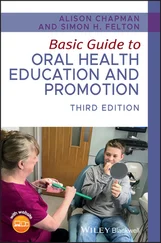Assisting any trainee dental nurses within the practice.
Assisting with any reception or other clerical duties as required.
Following health and safety guidelines to ensure safety for all members of the dental team.
Complying with all guidelines, such as: PPE, COSHH, mercury handling, infection control, and waste disposal.
Acting in accordance to all practice rules and codes of conduct.
Key tasks for a dental nurse could be, but are not limited to:
Following the practice procedures for infection prevention and control.
Setting up and preparing treatment rooms for each patient's appointment.
Preparing necessary materials and instruments, making sure that equipment and instruments are in safe working order.
Disposing of waste in the correct bins, such as clinical waste, special waste, and normal waste.
Assisting during taking and development of radiographs to your level of training.
Having relevant paperwork ready on reception, in surgery, or for a patient if requested.
Preparing and sending referrals to your level of training.
Maintaining and decontaminating equipment as per manufacturer's instructions.
Providing chairside support to the dentist, hygienist, or therapist during treatments.
Preparing materials and equipment.
Assisting in keeping full, accurate, and contemporaneous clinical notes for each patient.
Monitoring, supporting, and reassuring patients.
Supporting colleagues if there is a medical emergency.
Following all compliance rules set out by your practice.
An oral health educator has an important role within the dental setting to help prevent oral disease and promote good oral healthcare. Working as an educator means you have to hold a session, seeing patients on a one‐to‐one basis and promoting good oral health. These sessions could be held with a range of patients from children right the way through to senior patients. You may even be required to work within the community, meeting at schools and providing group sessions offering advice to children and their parents. As an oral health educator, you may want to expand your knowledge onto further areas such as:
diet and nutrition
impression taking
fluoride application
smoking cessation.
Working as an oral health educator, you are aiming to:
Reduce the patient's risk of dental caries, periodontal disease, and oral cancer.
Improve the patient's quality of life, including social and mental wellbeing.
Improve the patient's education on how to care for their oral health.
To complete the aims outlined above, you may be asked to:
Give advice to patients within a dental practice setting on referral from a dentist or orthodontist.
Travel out into the community to visit schools, care homes, foster homes, etc.
Provide group educational sessions to a certain target group.
Provide oral health instructions while working under supervision of a dentist.
Support clinical public health programmes/projects.
Participate in the design, development, and maintenance of oral health education materials, equipment, and visual aids.
Deliver in‐service training for healthcare/multiagency staff and to the staff in educational establishments.
Standards for the Dental Team – GDC
The GDC created the Standards for the Dental Team in 2013. They were put in place so dental care professionals have a strong understanding of what is expected of them within their role. The document contains nine principles; each principle outlines the patient's expectation, and the standards and the guidance on how this should be achieved and maintained day to day. The document clearly states that the nine principles are not placed in order of importance or priority. The standards that fall under each principle are what mustbe followed. The guidance is given to help meet the standards. All dental care professionals are expected to follow the guidance to provide professional judgements where necessary; if judgement is made, it should be easily justifiable if it is not in line with the guidance given. Within the document, anything that shouldbe applied, may not apply to every situation through exceptional circumstances – which is when your judgement on how to handle the situation would be taken into account.
Principle 1 – Put Patients' Interests First
Patient expectation:
To be able to explain preferences or concerns to a professional who will listen and take all information into consideration.
To be able to express their cultures and values within the practice and be respected as an individual.
That all professionals will work honestly and with integrity.
To receive treatment from a plan that has been created for the individual in accordance with the patient's health and wellbeing.
That the environment is clean and safe.
To be able to access the practice by reasonable adjustment if the patient has a disability.
That financial gain will not be the top priority and the patient's needs will always be put first.
If any harm is suffered during dental treatment, then the staff will redress this.
That any pain or anxiety that could be experienced will be managed as required.
The following information has been extracted from the GDC Standards for the Dental Team document.
Standard 1.1 Listen to your patients
1.1.1 You must provide the patient with a full discussion on the treatment options and listen carefully to anything the patient may disclose. Welcome questions from the patient.
Standard 1.2 Treat every patient with dignity and respect at all times
1.2.1 Your body language and tone of voice should be considered on how it may be perceived.
1.2.2 You should take patients' preferences into account and be sensitive to their individual needs and values.
1.2.3 You must treat patients with kindness and compassion.
1.2.4 You should manage patients' dental pain and anxiety appropriately, to ensure the comfort of the patient being treated.
Standard 1.3 Be honest and act with integrity
1.3.1 You must justify the trust that patients, the public, and your colleagues place in you by always acting honestly and fairly in your dealings with them. This applies to any business or education activities in which you are involved as well as to your professional dealings.
1.3.2 You must make sure you do not bring the profession to disrepute.
1.3.3 You must make sure that any advertising, promotional material, or other information that you produce is accurate and not misleading and complies with the GDC's guidance on ethical advertising.
Standard 1.4 Take a holistic and preventative approach to patient care which is appropriate to the individual patient
1.4.1 A holistic approach means you must take account of patients' overall health, their psychological, and social needs, their long term oral health needs, and their desired outcomes.
1.4.2 You must provide patients with treatment that is in their best interests, providing appropriate oral health advice and following clinical guidelines relevant to their situation. You may need to balance their oral health needs with their desired outcomes. If their desired outcome is not achievable or is not in the best interests of their oral health, you must explain the risks, benefits, and likely outcomes to help them to make a decision.
Standard 1.5 Treat patients in a hygienic and safe environment
1.5.1 You must find out about the laws and regulations which apply to your clinical practice, your premises, and your obligations as an employer and you must follow them at all times. This will include (but is not limited to) legislation relating to:
Читать дальше












